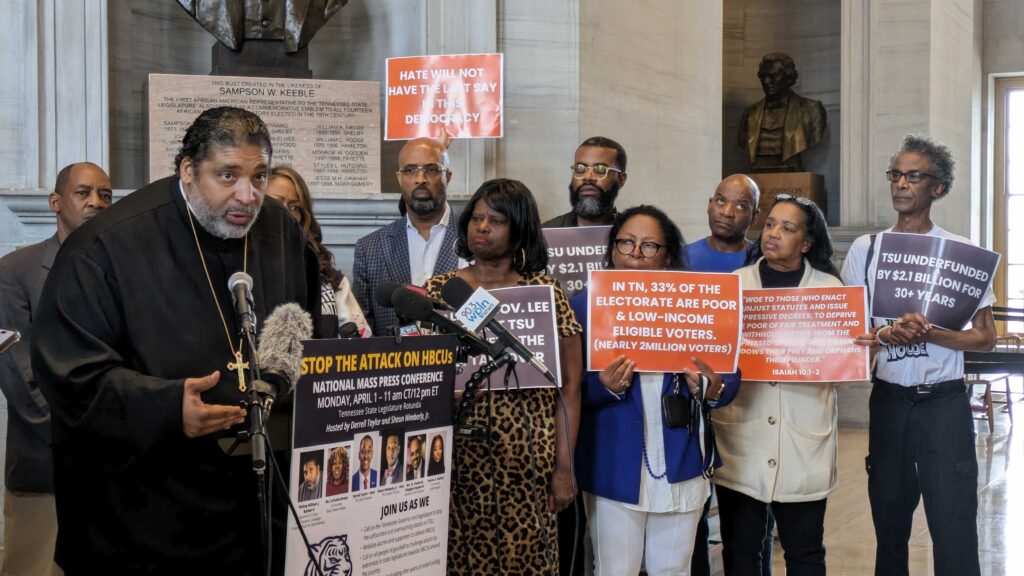
Following last week’s replacement of Tennessee State University’s board, supporters of the school are focusing on how to move forward, and recoup more than $2 billion in historic underfunding.
Republican lawmakers, citing housing issues and financial management concerns vacated the board of the state’s only historically Black public university. Gov. Bill Lee quickly appointed eight new trustees, all alumni of TSU.
At a press conference Monday, TSU supporters said the leadership change was an “attack” on TSU, after the school started asking the state to make up for decades of underfunding. A state legislative committee had uncovered as much as $544 million in unpaid funding in 2021. Then last year, the U.S. Department of Agriculture and U.S. Department of Education found that between 1987 and 2020, Tennessee had shorted TSU by $2.1 billion.
Media personality Roland Martin questioned the timing of lawmakers’ scrutiny into the university.
“When did they start caring about Tennessee State? Was it when they started asking for the money?” Martin said.
Shaun Wimberly Jr., the sole student trustee who was also vacated, said the fight for equitable funding at TSU must continue.
“We’ve done enough begging in my opinion,” Wimberly said. “Now is not the time to be requesting. It is our time to take what is ours.”
Rev. William Barber of the Poor People’s Campaign also called on communities across the country to fight for their underfunded HBCUs through “legislation, litigation and agitation.” A total of 16 states have underfunded their public land grant HBCUs, according to federal authorities. They include:
- Alabama
- Arkansas
- Florida
- Georgia
- Kentucky
- Louisiana
- Maryland
- Mississippi
- Missouri
- North Carolina
- Oklahoma
- South Carolina
- Tennessee
- Texas
- Virginia
- West Virginia
Combined, these states owed their public HBCUs more than $12 billion dollars, according to the federal government. Tennessee had underfunded its public HBCU more than any other in the report.
Strategizing the next move
Martin held a live two-hour broadcast of his daily digital show from a church near TSU’s campus Monday night. Much of the conversation among panelists focused on how to organize effectively going forward. Jeff Carr, a Nashville minister and former student government president at TSU, recalled when he and classmates made a successful push for campus investments in 1990.
“We took over the administration building and refused to leave. We went to the downtown campus, and for 14 days we sat there. Nine of those days we went on a hunger strike. I didn’t eat for nine days,” Carr said.
He credited the sit-in’s success to the students who initiated it.
“This is where this movement has to come from,” Carr said.
Some TSU students have shown up to the capitol in recent weeks to protest removing the board. Tequila Johnson of the Equity Alliance said about 50 students attended an event the group had helped organize to pack the House. But Martin said he thinks it would have taken more student presence at the capitol to dissuade lawmakers from vacating the board.
“I do not believe that if 1,000 or 2,000 or 5,000 showed up that they would be taking that type of action,” Martin said.

